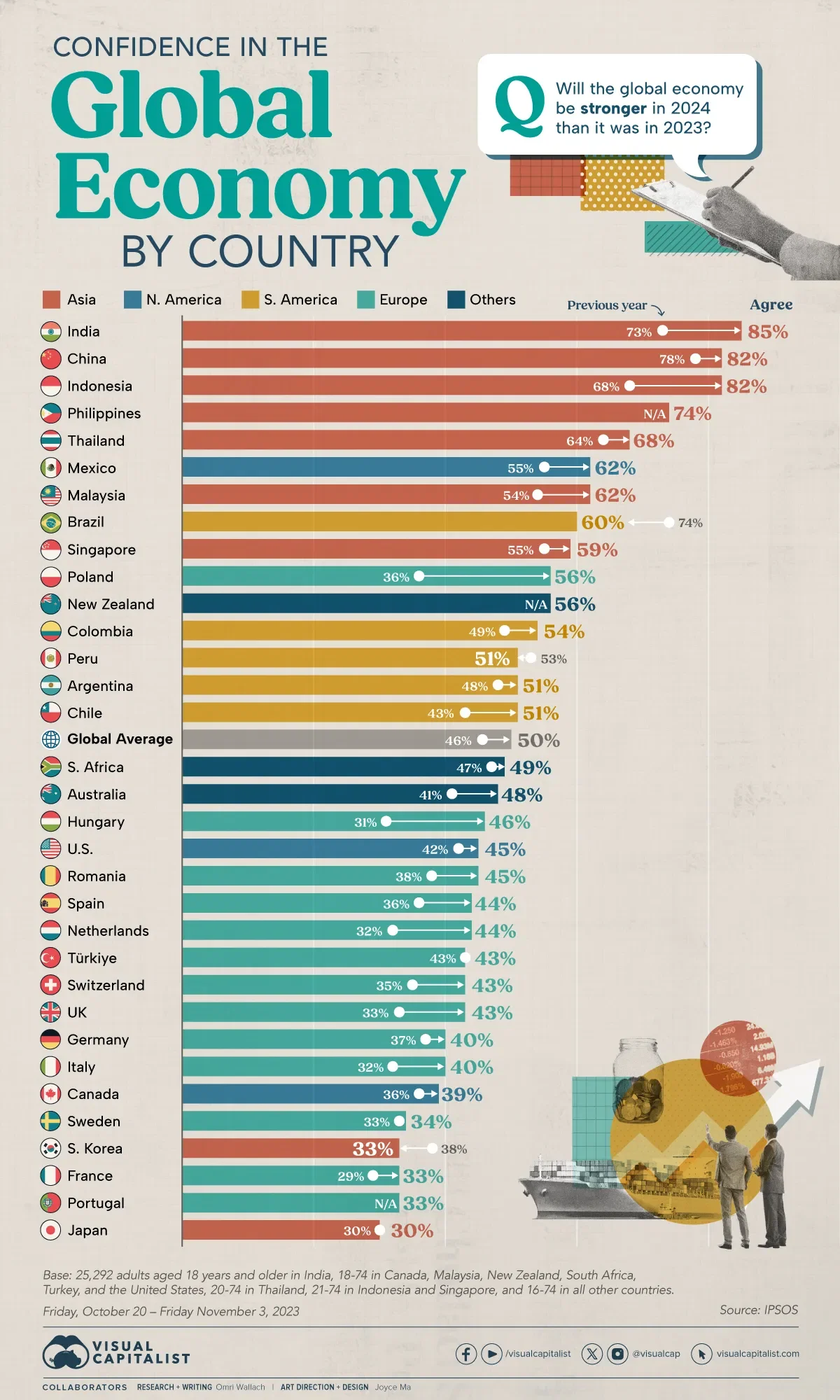Where Data Tells the Story
© Voronoi 2025. All rights reserved.

Measuring consumer confidence in the economy is crucial for understanding both current economic strength, as well as how consumers may be expected to act in the future.
So how do people around the world feel about the global economy?
This visualization uses survey data collected from October 20 to November 3, 2023 by Ipsos. It was first highlighted as part of our 2024 Global Forecast Series.
Heading into 2024, an average of 50% of polled adults felt confident that the global economy would be stronger than in 2023. But breaking down responses by country shows a vast disparity between responses.
The graphic and associated data shows the percentage of respondents who agreed with the following statement: “The global economy will be stronger in 2024 than it was in 2023.” In the data table, we also note the change in percentage points (p.p.) compared with the same question a year prior.
At the top, India, Indonesia, and China stood as being the most confident about 2024’s economic prospects. 85% of Indian respondents agreed that the global economy will be stronger in 2024 than in 2023, while 82% of Chinese and Indonesian respondents felt the same.
Regional disparities also become evident, with Asian countries making up the top five most confident countries and seven out of the top nine. In fact, South Korea and Japan were the only Asian countries surveyed that were not feeling confident, with Japanese respondents being the least confident (30%) and South Koreans tied for the second-least confident (33%).
Countries in South America ranged from Brazil having a high of 60% of respondents agree with 2024 being stronger than 2023 to Chile having a “low” of 51%. North American countries were more split, with Mexico feeling more confident and Canada feeling less confident.
Lastly, Europe stood out as being the least confident in the global economy in 2024. Only Poland (56%) had more than 50% agree that this year would be better than the last, while major economies like Germany (40%) and France (33%) sat closer to the bottom of the table.